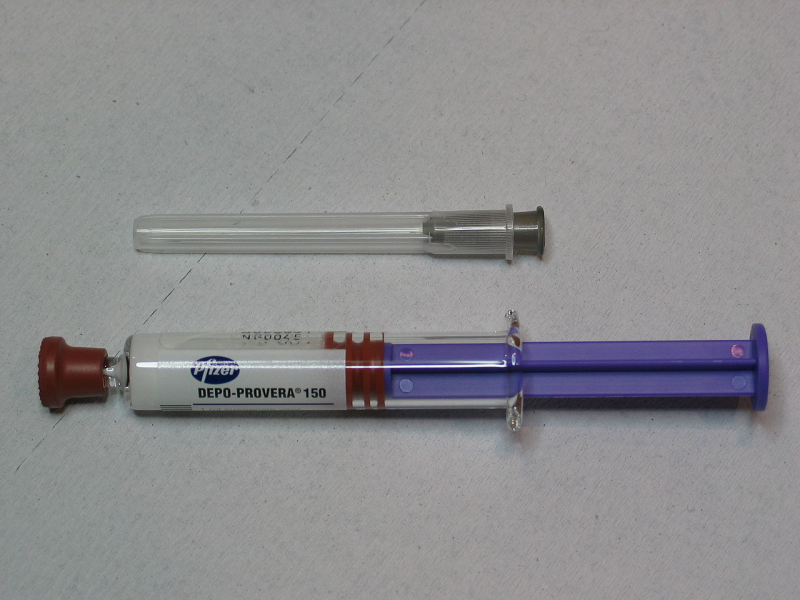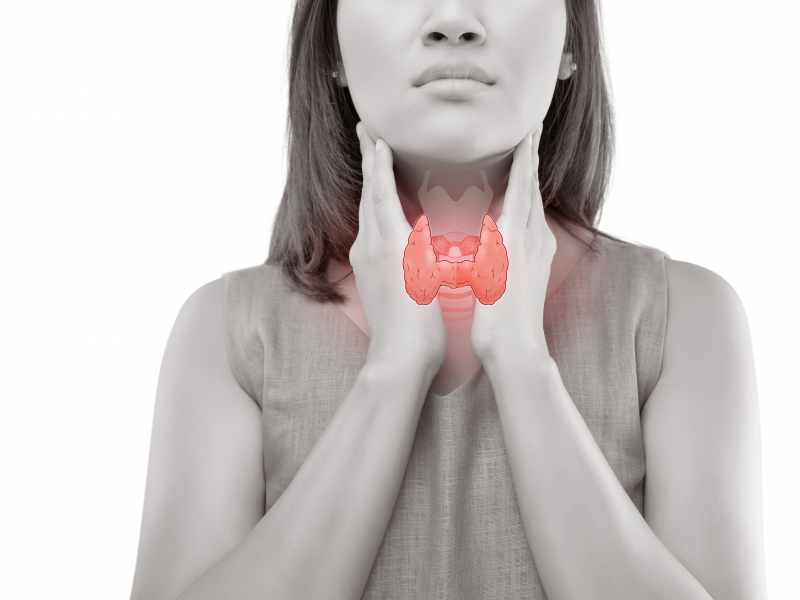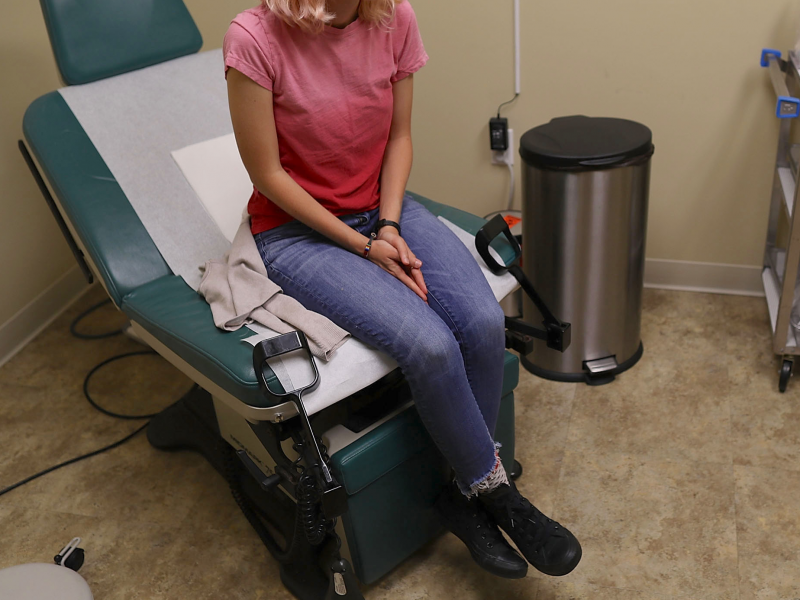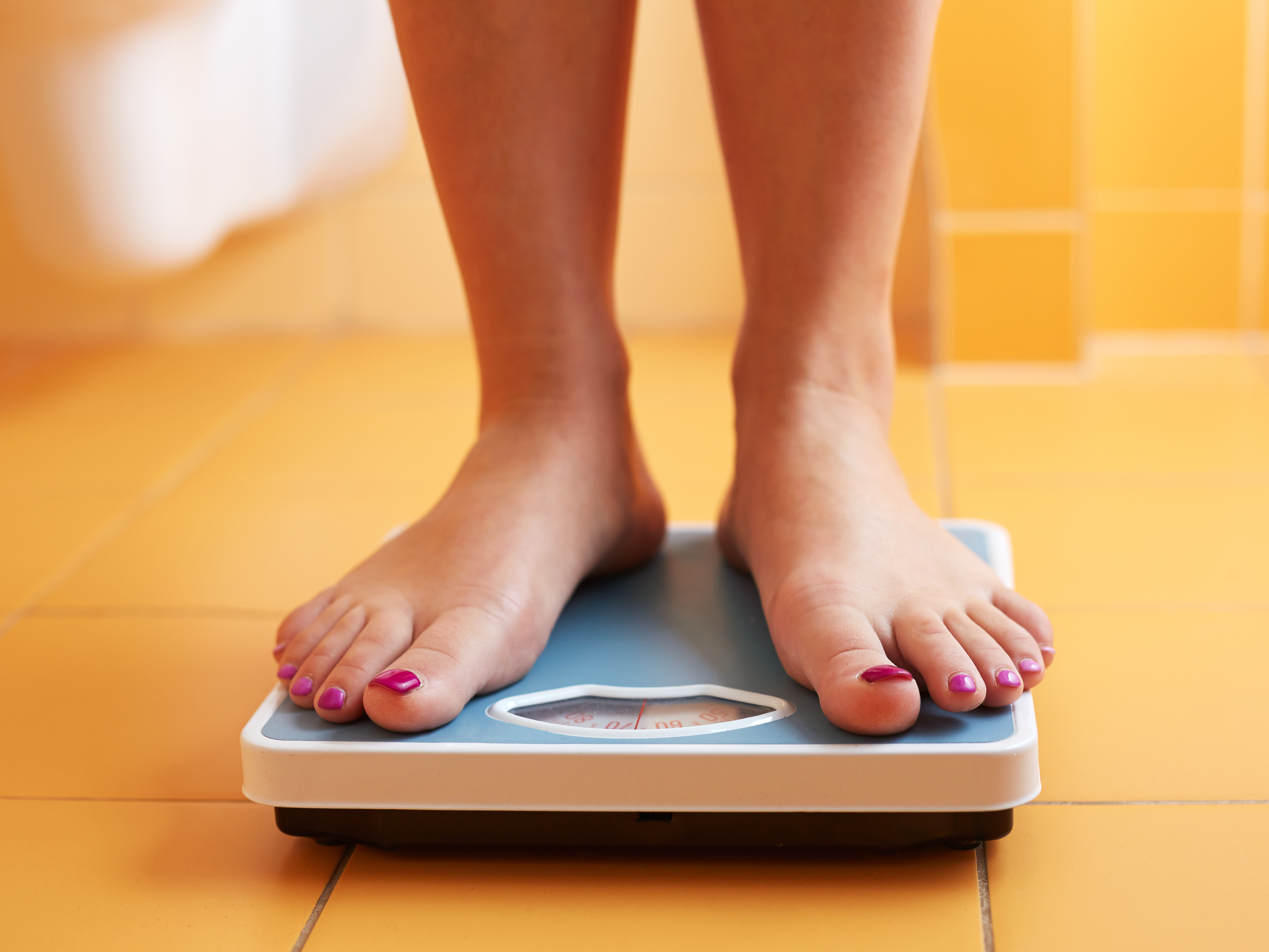- Watching what you eat is important, but if you’re doing so to lose weight, it might not work.
- There are some other health reasons that could be preventing you from losing weight.
- It is important to consult with your doctor.
There are a number of reasons as to why you could be struggling to lose weight or are gaining weight even if you’re eating well.
Dr. Holly Lofton, director of the Weight Management Program at NYU Langone Health, told INSIDER that this is a common problem for her patients, but there are solutions.
“I see this very commonly,” Lofton said. “The average person comes in, they know how to lose weight … they’re doing what they expect they should, they’re tracking their calories, they’re doing 10,000 steps, and they’re not getting weight loss, or, God forbid, [they are gaining weight].”
Here are some reasons why you may be gaining weight even if you have a healthy diet.
Side effects of your medications could be causing you to gain weight.

Certain medications, particularly antidepressants, could cause you to gain weight as a side effect.
"[SSRI antidepressants] have weight-gain potential when taken for more than a couple of months," Lofton said. "That's a really common [reason for weight gain]."
"You could just do an online search and see if weight gain is one of the side effects of your medication. That's readily available information online," she said. "Also, talk to your doctor. If the medication you are on does have weight-gain potential, there are likely some alternatives in similar classes that might be better for you."
Contraception could make you gain a few extra pounds.

Some forms of contraception have weight gain as a common side effect. According to WebMD, birth-control pills have lower amounts of hormones, making it less likely for these to cause weight gain. However, Lofton said, other kinds of contraception can cause weight gain.
"I see it commonly with these Depo shots … the three-month Depo injections [can add] about 13 pounds a year," Lofton said, referring to Depo-Provera shots.
You might have a hormone imbalance that makes you gain weight.

Your hormones are chemicals that control most of your bodily functions. If you're gaining weight without any obvious explanation, it could be a sign that you have a hormone imbalance.
According to StyleCraze, the hormones that are most likely to cause weight gain are insulin, leptin, ghrelin, estrogen, cortisol, testosterone, progesterone, melatonin, glucocorticoids, and those produced by the thyroid.
Other medical conditions could cause you to gain weight.

Lofton said one of the most common medical conditions she sees that causes weight gain is polycystic ovarian syndrome, a condition that causes an imbalance of reproductive hormones, which can cause infertility.
"I see a lot of people with this, and it's just very frustrating that they do the same as their friends and colleagues and just don't get any weight-loss result, and then actually can get weight gain in a pattern that doesn't really make sense because their bodies easily store fat and don't let go of fat cells once they're produced," Lofton said.
"That's a condition that really needs to be treated with dietary intervention and, a lot of times, medication for us to get significant weight loss results."
Certain brain injuries, particularly injuries to the hypothalamus, a part of the brain near the pituitary gland that controls appetite, can also cause weight gain, Lofton said. She said there are medications that can help with appetite management.
Your family history or genetics could be causing you to gain weight, but these are possible to overcome.

Lofton said that while genetics can predispose people to gain weight or have trouble losing weight, it can be overcome.
"We think, 'My mom was heavy, my dad's heavy; I'm just destined, there's nothing I can do,'" Lofton said. "It's also about prevention when we're younger, before we reach overweight, making sure our lifestyle is as active as it can be. Environment can make all the difference."
As you get older, your body is more prone to lose muscle mass and store fat.

Patients in their 50s and older often ask Lofton why weight-loss practices from their younger years don't work anymore.
"Your metabolism slows about 2% or so every couple of years, so it just gets harder to lose weight as you get older," Lofton said. "What we can do to try to prevent that is continue muscle-building activity."
"We lose muscle mass as we get older if we don't actively try to recruit muscle and get stronger," she continued. "And our hormones change and things like that, but again, that can be overcome. I have 85-year-old, 90-year-old people losing weight with diet and exercise. It's just finding what works for you."
Stress triggers your brain to crave comfort foods and stabilizes your fat cells.

According to Lofton, our bodies process stress with a fight-or-flight response.
"I liken that to we're being chased by a bear," she said. "Your body doesn't focus on losing weight; it actually makes you prepare for the run or the fight.
Chronic stress, like for an accountant during tax season or a college student during finals, is worse. It can cause brain trauma that leads us to crave comfort foods.
"The stress can make our fat cells a little more stable, but it's more likely that we're just taking in more calories during that time," she said.
Sleep deprivation gives you an opportunity to eat more and also triggers stress hormones.

When you aren't sleeping, your body processes that as stress, Lofton said.
"If you're not sleeping at least seven hours [a night] for an adult, the body does not properly get the hormonal response about how much fat stores you have," she said. "So in order to preserve itself, the body … says, the person's not sleeping enough; there must be a stressful event going on, like a famine or some kind of a predator, so let me make more fat stores and let me increase hunger."
"That's one of those evolutionary things," she said. "And the other thing is, the longer you stay awake, you're inevitably going to get hungry again, and then you have more opportunity to eat."
Even if you're dieting properly, you need exercise to build up your metabolism.

When you start losing weight, your body reacts by increasing your hunger hormones to regain the pounds. At the same time, your metabolism is slower because you're lighter. The remedy is exercise.
"Activity becomes more important, because you can only cut calories so much," Lofton said. "At the beginning of your weight-loss journey, say, at your highest weight or right after Thanksgiving and all these holidays, really just cutting your calories - your body will let go of some fat, of some water, of some stored glycogen in your liver, and you will start to see weight loss."
"But when it plateaus, that's the time to boost your metabolism by doing exercise to get it down more," she said. "Because otherwise, you'll just be starving and you'll lose muscle, and that's not good."
If you exercise enough, your body could produce enough muscle to the point that you gain muscle mass — and, therefore, weight.

As you exercise, you burn fat and build muscle. If you're gaining weight but have a good exercise routine and a healthy diet, it's possible the weight is muscle mass, especially because muscles are heavier than fat.
"I could have two people of the same weight, one carrying more muscle mass and one carrying more fat mass," Lofton said. "The first one, with more muscle mass, is more metabolically active. [If the patient] uses up a lot of energy very quickly, it's going to burn calories more quickly than someone who has that same - let's say 150 pounds - of mostly fat."
"Building muscle can help us, in the long term, lose fat. Even if one's weight stays the same."
Visit INSIDER's homepage for more.
